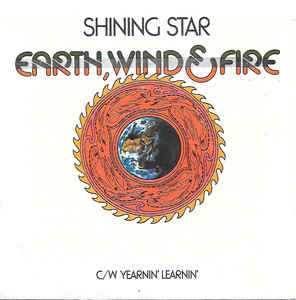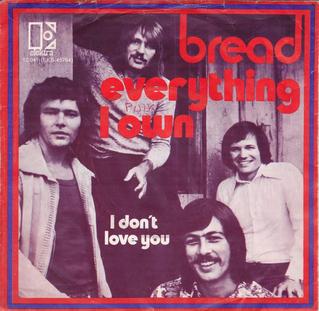Summer’s here!
Follow Tunes Du Jour on Facebook
Follow Tunes Du Jour on Twitter
Follow me on Instagram
Jazz is a genre that defies easy definition, yet its influence is undeniable across decades of music history. At its core, jazz represents freedom – freedom of artistic expression, freedom to improvise and venture into uncharted musical territory. From the early days of jazz pioneers like Louis Armstrong, Duke Ellington, and Billie Holiday, this artistic freedom has been the driving force behind the ever-evolving sounds of jazz.
The genius of jazz lies in its ability to seamlessly blend composition and spontaneity. Take Miles Davis’ seminal album Kind of Blue, where masterful musicians like John Coltrane and Cannonball Adderley were given a simple modal framework to build upon through their improvisations. The result was a transcendent exploration of space, melody, and emotion that still captivates listeners today. Similarly, Dave Brubeck’s “Take Five” broke new ground with its innovative use of quintuple meter, exemplifying jazz’s boundary-pushing spirit.
Yet jazz is more than just innovative time signatures and harmonic progressions. It’s a language of human experience, a means of conveying the full spectrum of emotions through sound. Billie Holiday’s haunting rendition of “Strange Fruit” transformed a song into a searing indictment of racism and injustice. Nina Simone’s stirring vocals on “My Baby Just Cares for Me” radiate warmth and playfulness. And Chet Baker’s rendition of “My Funny Valentine” captures the exquisite vulnerability of heartbreak with effortless cool.
As the genre evolved through the latter half of the 20th century, jazz continued to defy conventions and push creative boundaries. The modal jazz of John Coltrane’s “A Love Supreme” was a spiritual exploration unlike anything that came before it. Ornette Coleman’s pioneering free jazz broke down traditional concepts of melody and harmony. And the fusion era saw artists like Herbie Hancock, Weather Report, and Grover Washington Jr. incorporate elements of funk, rock, and R&B into their jazz foundations.
From its humble beginnings in New Orleans to its modern global influence, jazz has remained a quintessential expression of artistic freedom. Its ability to constantly reinvent itself while maintaining a deep reverence for its roots is what makes it one of the most vital and culturally significant art forms of our time. Jazz is more than just a genre – it’s a living, breathing embodiment of the human spirit’s endless capacity for creativity and innovation.
Follow Tunes du Jour on Facebook
Follow Tunes du Jour on Twitter
Follow me on Instagram
Is technology ruining music? I’ll answer that with another question: If we had GPS in the 1960s, would we have gotten “Do You Know The Way To San José?” If you request Alexa to play “Do You Know The Way To San José” by merely stating its title, would Alexa play it or ramble on about making a left here and bearing right there, which would make for a real crap song? When presented with “Do You Know The Way To San José” by its writers, Burt Bacharach and Hal David, Dionne Warwick was not taken by it. “What is this whoa whoa whoa whoa whoa whoa whoa whoa whoa crap?” she asked. I’m paraphrasing. She eventually came around, for decades later she said that winning the Grammy Award for Best Female Pop Vocal Performance for her recording of that song was the highlight of her career.
Dionne Warwick was born on this date in 1940. Lots of songs performed by her are included on today’s playlist.
Follow Tunes du Jour on Facebook
Follow Tunes du Jour on Twitter
Follow me on Instagram
In 1993, humor columnist Dave Barry surveyed his readers to find the worst song. The clear winner for Worst Overall Song and Worst Lyrics was “Mac Arthur Park.” Culture critic Joe Queenan disagreed with the results “because ‘Ebony and Ivory’ exists, as do ‘You Don’t Bring Me Flowers,’ ‘Baby, I’m-a Want You,’ ‘Feelings,’ ‘Benny and the Jets,’ ‘Witchy Woman’ and ‘Sussudio,’” adding “On a planet where somebody thought it would be a good idea to write ‘Scenes from an Italian Restaurant,’ the best ‘MacArthur Park’ is ever going to earn in the sucky-song sweepstakes is a tie.”
The late Richard Harris was born on this date in 1930. Celebrate his birthday with a piece of soggy cake and by listening to today’s playlist, which includes the song many hate.
Follow Tunes du Jour on Facebook
Follow Tunes du Jour on Twitter
Follow me on Instagram
Today’s playlist celebrates the August 4 birthdays of Louis Armstrong, 808 State’s Graham Massey, Sepultura’s Max Cavalera, Frankie Ford, The Lightning Seeds’ Ian Broudie, Helado Negro, Timi Yuro, Cliff Nobles, Durutti Column’s Vini Reilly, and Yo-Yo; and the August 5 birthdays of Dead or Alive’s Pete Burns, Beastie Boys’ Adam Yauch (a/k/a MCA), Sammi Smith, The McCoys’ Rick Derringer, The Remains’ Barry Tashian, Samantha Sang, The Spiral Starecase’s Pat Upton, The Brady Bunch’s Maureen McCormick, and Funkmaster Flex.
Follow Tunes du Jour on Facebook
Follow Tunes du Jour on Twitter
Follow me on Instagram
Nobody would deny that 1964 was among the most pivotal years in rock and roll. Nobody except Lester, a guy I worked with decades ago. He was an idiot. The Beatles and the other artists who stormed the US pop charts during the first British Invasion made an indelible impact on contemporary music and culture. Motown was ascending and producing classic singles. Girl groups were still hanging around creating pop perfection. Bob Dylan was making himself known, messing with the vocals one expected on a hit record. And Dionne Warwick was already the queen of Twitter.
Here are thirty songs that partly defined 1964. Take note, Lester.
Follow Tunes du Jour on Facebook.
Follow Tunes du Jour on Twitter.
Follow me on Instagram.

Inspired by the season and the December 19 birthdays of Earth Wind & Fire’s Maurice White, Lady Sovereign, Phil Ochs, KajaGooGoo’s Limahl, Walter Murphy and Lenny White.

Inspired by the season and the December 11 birthdays of Jermaine Jackson, Brenda Lee, Mos Def, Bread’s David Gates, Perez Prado, Big Mama Thornton, J. Frank Wilson and Jon Brion.